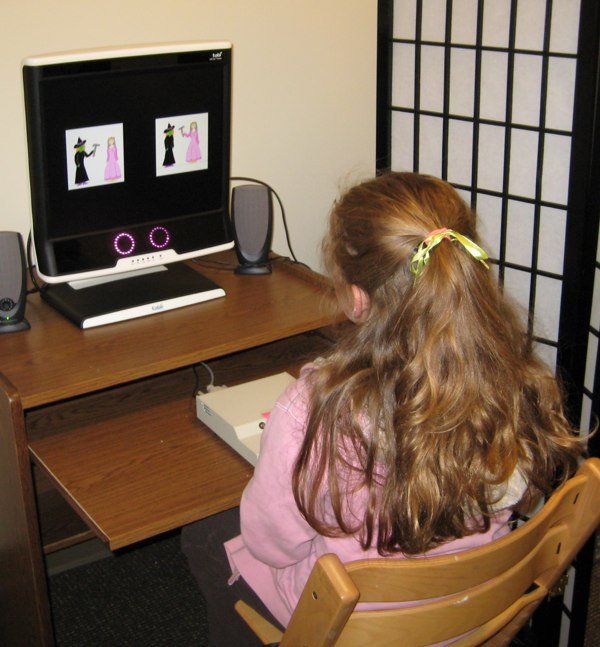It is hard to come across people who dedicate their time, talent and resources to helping others the way Professor Abbey Eisenhower does. She has a goal set firmly in her sights: to help children diagnosed with autism in their transition from home life to formal school settings.
Eisenhower is an assistant professor in the Psychology department who teaches undergraduate classes as well as the graduate Ph.D. program in clinical psychology. Eisenhower founded the research organization called Smooth Sailing, which was started in the summer of 2011 and has chapters in UMass Boston and University of California (UC), Riverside.
The current goal of the organization, which is funded by the Institute of Education Sciences, is “to figure out what helps children with autism succeed in school, and how we can improve those factors,” says Eisenhower. The organization studies children from ages four to seven.
There are 25 participants in the study at UMass Boston and another group of participants at UC Riverside, and the number is rapidly growing.
The study has produced examples of children with autism taking positive strides with the help of good teachers and programs that match their needs well. However, the study has also shown cases where the autistic children have had social difficulties or experienced problems regulating their behavior in the classroom.
Eisenhower’s work and the bulk of her research focuses on the transition of young children with autism from preschool to more formal settings, like kindergarten and first grade. “The reason is that for children with autism, and children with other similar challenges, the transition from home to school is particularly rife with potential challenges,” says Eisenhower.
Eisenhower explained that extensive research on the early life of children with autism is necessary because little is known about their early relationships with teachers, but those relationships may be crucial to their future success as students. “My focus is on understanding what helps children with autism succeed during that early school period,” she asserts.
The relationship between Eisenhower and autism has a bit of a personal twinge to it. An insight gleaned from a friend who was intellectually challenged inspired Eisenhower to do more for the members of society, particularly the young diagnosed with autism.
It was during her college years when she was a literacy instructor for her friend, a man determined to learn to read but who had an intellectual disability, that Eisenhower saw first hand the difficulties faced by intellectually challenged people. Eisenhower was present when he read his first complete book.
“They want the same things as everybody else: romantic relationships; friendships; jobs; quality of life. I think that was a driving factor behind my wanting to do research on intellectual disabilities. Intellectual disabilities and autism often go hand in hand, but not always,” says Eisenhower.
The professor plans to keep on dedicating herself to this cause, striving to make the future brighter for children with autism.
Eisenhower has been at UMass Boston since the fall of 2008. Prior to her arrival at here, she completed her Ph.D. in clinical psychology at the University of California, Los Angeles, and also had a stint working at Massachusetts General Hospital doing an internship in child clinical psychology.





















































